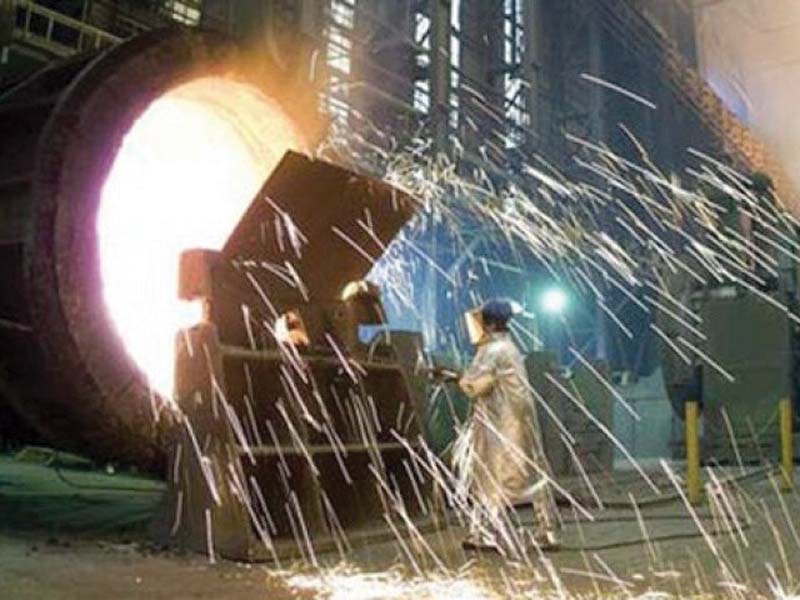
Amid a row over the exclusion of Rs33 billion contingent assets from Pakistan Steel Mills’ (PSM) balance sheet, Privatisation Commission Chairman Mohammad Zubair said on Wednesday that it was actually the management of the industrial unit that did not take them into account.
The management of the PSM, ahead of its privatisation, did not show Rs33 billion deferred tax assets on its balance sheet of up to March 2015 since the management did not treat the entity as a going business concern, said Zubair while addressing a press conference.
The chairman said the deferred tax assets can only be realised once the entity becomes profitable. He claimed that there was no plan of further investment in PSM.
The issue of contingent assets’ exclusion arose during the approval process of the transaction structure for PSM’s privatisation that was to be made by the Cabinet Committee on Privatisation (CCoP).
Although the asset was not included in the balance sheet, it was separately mentioned in a presentation to the CCoP, he insisted.
The CCoP had not accepted PSM’s transaction structure and Finance Minister Ishaq Dar, in his capacity as chairperson CCoP, decided to offer the entity to the Sindh government.
While the chairman insisted that the PSM transaction structure was worked out in a transparent manner, questions remained unaddressed over the issue of the actual value of the entity by excluding the contingent assets.
Discrepancy
Zubair also refuted that there was a plan to invest $885.8 million under the proposed transaction structure, although the Privatisation Commission’s documents state otherwise.
The official documents stated that, “based on due diligence, the technical consultant recommends three phased investment in the PSM. It recommends an amount equal to $288.8 million initially for revival and phased investment for expansion and then up to 3 million tons per annum capacity in further two phases to be channeled directly into the PSMC by new investor”. It proposes $300.4 million investment in the second phase and $296.6 million in the third phase.
PSM is on the active list of privatisation and the government has promised the International Monetary Fund that the entity will be sold by March next year. The federal government remains divided over the issue of privatisation of state assets. A federal minister who is also member of the CCoP is reportedly opposed to the privatisation, saying it is not the right time for the sale of strategic assets.
Zubair said it was the personal opinion of the Planning Minister, Ahsan Iqbal, and Prime Minister Nawaz Sharif remains committed to the privatisation policy.
Zubair said the government was waiting for the response of the Sindh government over its offer to sell PSM, which was expected in the next few weeks.
Chairman Senate Standing Committee on Finance and Privatisation, Senator Saleem Mandviwalla, on Wednesday again demanded that the government should work on the revival of PSM and Pakistan International Airlines instead of their privatisation.
Meanwhile, efforts to contact the PSM management did not heed a result.
HEC deal
Zubair had to face tough questions over the issue of the failed bid to privatise Heavy Electrical Complex and the alleged dubious role of some officials of the PC in the deal. “I take full responsibility of taking the risk to sign a deal with the company that was not financially sound,” said the chairman while responding to a question.
Zubair said he took the risk as long as the government’s interests were not compromised.
The HEC privatisation deal failed after the buyer, Cargill Holdings Limited, could not deposit the bid money, resulting in the cancellation of the transaction. A parliamentary committee has already launched an investigation into alleged wrongdoings in the HEC privatisation deal.
Published in The Express Tribune, October 15th, 2015.
Like Business on Facebook, follow @TribuneBiz on Twitter to stay informed and join in the conversation.

1732437695-0/drake-and-charles-(1)1732437695-0-165x106.webp)


1732434981-0/BeFunky-collage-(10)1732434981-0-165x106.webp)
1732433856-0/Untitled-design-(6)1732433856-0-270x192.webp)
1732429143-0/BeFunk_§_]__-(44)1732429143-0.jpg)
1732428532-0/BeFunk_§_]__-(43)1732428532-0.jpg)

1732427746-0/Copy-of-Untitled-(2)1732427746-0-270x192.webp)







COMMENTS (4)
Comments are moderated and generally will be posted if they are on-topic and not abusive.
For more information, please see our Comments FAQ